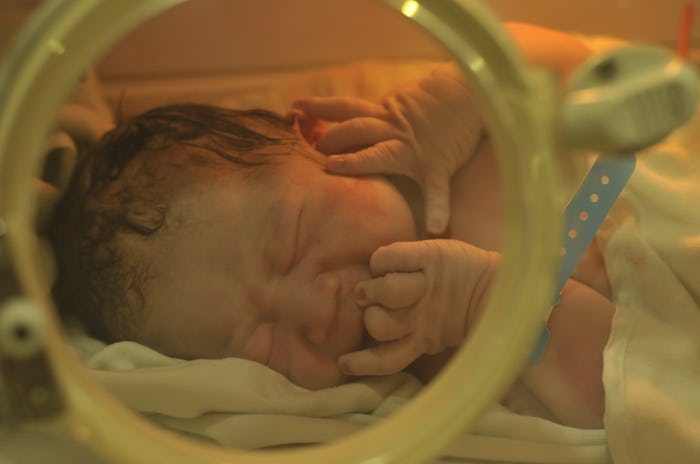Life

Today Is World Prematurity Day, & Here's How You Can Help Babies Around The World Who Were Born Too Soon
Today, Nov. 17, is World Prematurity Day, a day aimed at raising awareness of the troubling risks of premature birth. While most people are aware that babies born early can be at risk for health problems, few are aware just how bad those problems can be. In fact, according to the World Health Organization, premature birth is now the No. 1 cause of death in children under age five. Fifteen million babies (which translates to about one in ten) are born prematurely every year, and sadly, about a million don’t make it.
A baby born before 37 weeks gestation is considered premature, but the earlier a baby is born, the more likely he or she is to have health problems. Premature babies are at risk for apnea, respiratory distress syndrome, intraventricular hemorrhage, patent ductus arteriosis, necrotizing enterocolitis, retinopathy of prematurity, jaundice, anemia, bronchopulmonary dysplasia, and infections. The average medical cost for a healthy baby is $4,389, while preemies’ medical care costs average $54,194.
Some causes of prematurity are well-known, such as preeclampsia, infection, placental abruption, smoking, obesity, high blood pressure, drug or alcohol use, and diabetes. Some are lesser known; such as maternal age (both older and younger) and periodontal disease. That’s right, mom’s gum disease can cause premature birth. Yet another reason it’s important to floss! Still, only half of premature births can be attributed to any known cause. And without knowing the cause, there’s no way to prevent them.
Since 2004, the March of Dimes has been funding research into the causes of prematurity through its Prematurity Research Initiative, handing out nearly $28 million in grants to date. They also fund research on treating and even stopping preterm labor, and treating the preemies that couldn’t be prevented. They’ve been funding research grants since their inception in 1938. You might be familiar with one of their recipients, Jonas Salk, MD. Sound familiar? Yep, the March of Dimes funded the development of the polio vaccine. These people get things done! If you’d like to support the March of Dimes’ mission, you can make a financial donation, or visit their Advocacy Action Center to learn other ways you can help.
One million babies are on the line. Let’s keep them safe.
Images: sun hoon Choi, César Rincón/Flickr